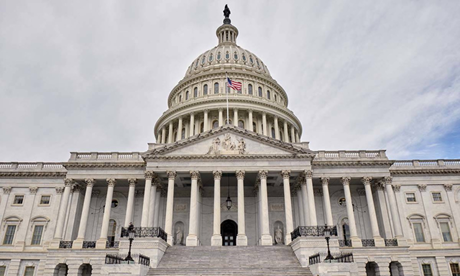House Financial Services Committee to Vote on Comprehensive Stablecoin Bill This Week
The bill aims to impose stricter standards on stablecoin issuers and ensure greater transparency in maintaining the peg.

This week, the U.S. House Financial Services Committee will vote on an ambitious bipartisan bill to regulate stablecoins, with requirements related to reserves, audits, and licensing for issuers.
The bill, introduced by Representatives Patrick McHenry (R-NC) and Maxine Waters (D-CA), is called the StableCon Act, and aims to provide a clear regulatory framework for stablecoins, strengthen consumer protections, and ensure financial stability in the use of these digital assets.
If passed, the StableCon Act would require stablecoin issuers to adhere to strict reserve standards, ensuring each stablecoin is fully backed by safe assets such as cash and U.S. Treasury securities. Issuers would also be required to provide quarterly audits, and adhere to anti-money laundering and sanctions compliance measures.
“Stablecoins offer tremendous potential to improve the global payment system, but we need to ensure they are rigorously regulated to protect consumers and avoid systemic risks,” Rep. McHenry said in a statement.
StableCon is one of the largest efforts by Congress to provide a comprehensive regulatory framework for stablecoins, as the U.S. moves to catch up with other countries on cryptocurrency regulation. The act would also require foreign-based issuers to comply with U.S. regulations on reserves, liquidity, and transparency if they want to access the U.S. market.
Tether and USDC Could Face Regulatory Action
If passed, the law would have a significant impact on major stablecoin issuers like Tether (USDT) and USD Coin (USDC). While Circle’s USDC is based in the US and has complied with many of the bill’s requirements, Tether, which is headquartered in El Salvador, would face challenges in meeting the new audit and reserve standards.
Tether has long faced criticism for its lack of transparency in how it backs its stablecoins, primarily using Bitcoin and non-cash assets. The new regulations could force Tether to liquidate a large portion of its Bitcoin reserves to maintain its peg to the US dollar and meet US requirements.
In an effort to address these challenges, Tether recently hired Simon McWilliams as its new CFO to ensure stricter auditing and compliance.
The StableCon bill is considered by many experts to be a major turning point for the stablecoin industry, promoting the adoption of higher standards, while bringing stability and confidence to consumers in the use of cryptocurrencies.
